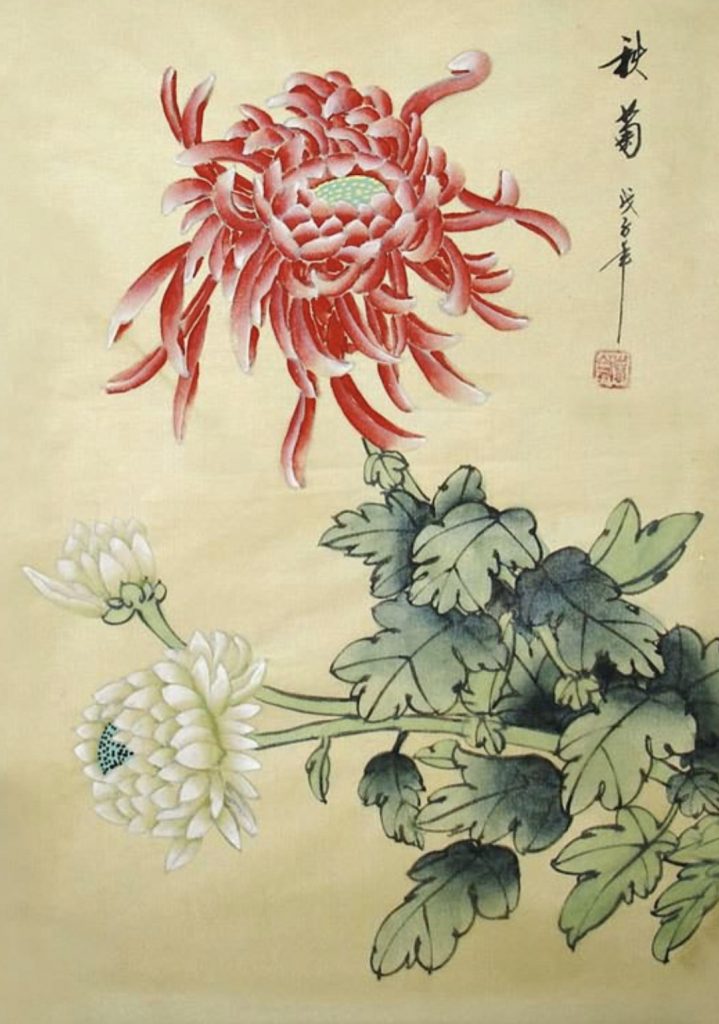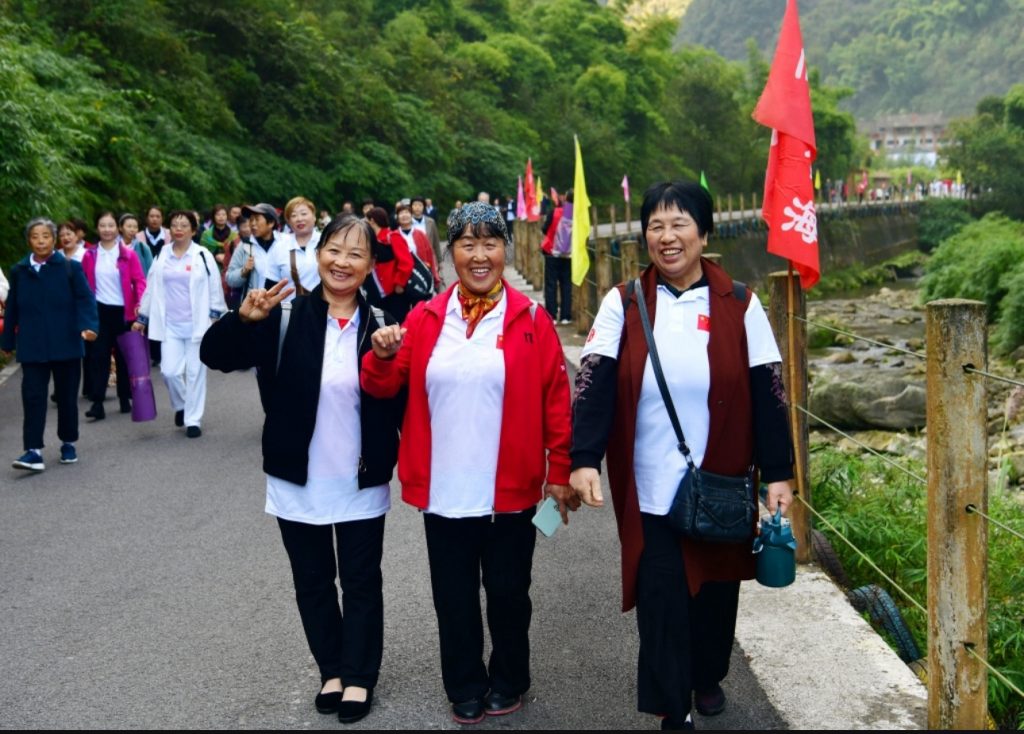
This Friday, 27th October, all of the students in my school in Beijing with all of their teachers and the company of some parents will make a 20 minute bus journey to the outskirts of Beijing and climb a mountain. For those of you who don’t know Beijing, it is a city in a bowl of mountains. One of the joys of my apartment is that I can see the mountains very clearly from the windows.
But why are we climbing the mountain together on Friday? In the UK this might be an outdoors activity, designed to promote healthy lifestyles and to re-connect the students with nature. And it is both of those things here in Beijing. But it is also part of the cultural celebration of an event called ‘Double Ninth Day’ or to give its more formal title ‘重阳节’ or ‘Chongyang Jie’.
So let me introduce you to Double Ninth Day. First of all let’s try to understand the name. You’re probably aware that numbers have all sorts of cultural meanings in China. According to records from the mysterious book the ‘I Ching’ or ‘Book of Changes’《易经》the number 6 belonged to the Yin character of the famous Taoist ‘yinyang’ symbol while the number 9 was thought to be of the Yang character. So, on the ninth day of the ninth lunar month, both day and month are Yang characters. Therefore, the festival was named the Double Ninth Festival.
Is there a traditional story to explain Chongyang? Of course there is, there’s a fabulous legend attached to every festival. For this legend we have to go back to the Eastern Han era in Chinese history ( 25-220 AD). The story tells of a plague demon who lived in the River Ru. Once the demon emerged from his watery lair and killed the parents of a young man called Hengjing. Determined to take revenge, Hengjing, became the follower of a Taoist immortal teacher in order to learn the magic skills needed to defeat the demon. Through his patient study, Hengjing acquired a bag of an evil smelling herb called dogweed and a flask of chrysanthemum wine. Back at the village he gave each villager a leaf of the herb and a bowl of the wine and led them into the mountains for safety. Sure enough the next time the villainous demon crept out of the river to kill a villager or two, the good people disoriented him with the fumes of the weed and the wine. And while the demon staggered around on the mountainside, the courageous Hengjing finished him off with a few blows of his sword.
So, on Friday we will take our children on to the mountain to fight and defeat plague demons! Of course not. But as with all Chinese customs and traditions there are thoroughly sensible reasons for the beliefs, that almost always relate to health. We all know that mountain air will be fresh and clean. In the days before modern medicine it probably made perfect sense to leave a city or town being consumed by disease and retreat to the mountains.
As for the chrysanthemums, autumn is the time when these flowers are at their best in China. Since they flower when the weather starts to grow colder, they are seen as symbols of strength and vitality. Furthermore an infusion of Chrysanthemum tea has antibacterial, antifungal, and anti-inflammatory characteristics. It is a herbal medicine. Therefore drinking this health giving brew when moving from the warmth of early autumn to the cold of late autumn and approaching winter would be a very sensible health precaution. And why not go out and climb a mountain to enjoy the spiritual uplift of the mountain views before winter snow and ice makes them inaccessible until Spring?
Since 1989, a new meaning had been added to ‘Double Ninth Day’. As nine is pronounced ‘jiu’ / “久” meaning long in Chinese, so people endow the word ‘jiu’ with the meaning of longevity in a person’s life. In the year 1989, Double Ninth Festival was designated as ‘Senior’s Day’ – a day to respect the elderly and to let them enjoy themselves. Many companies organise groups where retired people can go out to climb mountains or on other outings. Members of a family also accompany their elders to have a relaxing day in a natural setting while wishing health and happiness upon them.
On our way up the mountain we can look forward to meeting families with senior members also making the climb and I am certain my students will share courteous and respectful ‘double ninth’ greetings with them.
